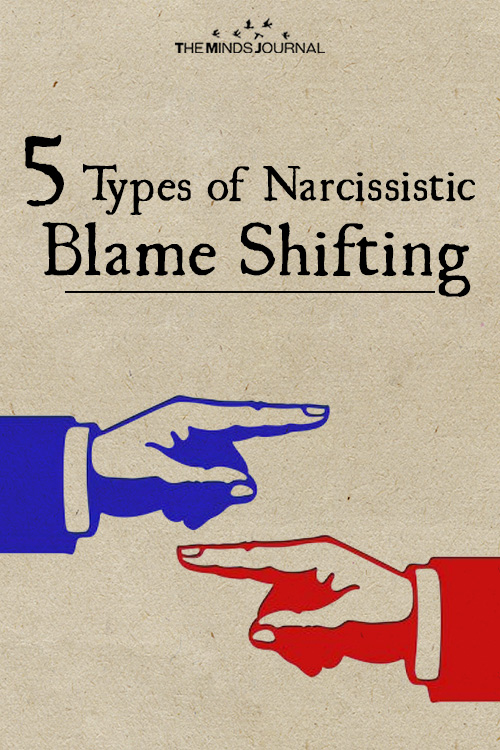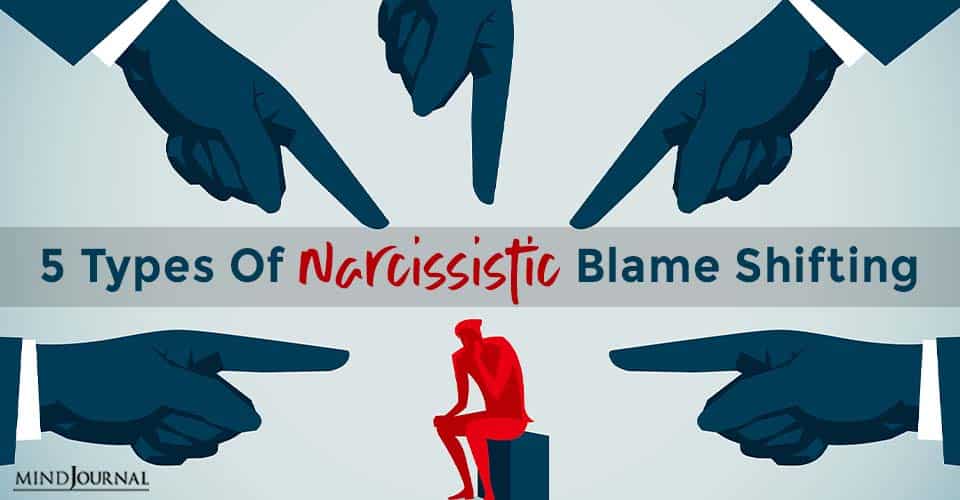Individuals with Cluster-B personality disorders regularly use blame-shifting to manipulate conflicts within themselves because admitting fault is not an option for them. Here’s everything you should know about narcissistic blame shifting and the types of narcissistic blame shifting.
The existence of a malignant narcissist is predicated on extracting narcissistic supply from their significant others. A narcissist always functions in a psychological void.
Hence they cannot maintain the façade he/she has masterfully crafted during the idealization stage for too long. Inevitably the discard/devalue stage comes in, repeating the idealization-devaluation cycle.
The survivor of the abuse is astonished when the partner suddenly projects his repressed emotions onto the love object.
The projection was originally coined by psychoanalyst, Sigmund Freud, as a state in which a person defends himself against his own unconscious impulses, emotions, or beliefs by denying their existence in themselves while attributing those qualities to a significant other/family member/person. Among the survivor projection is commonly known as the ‘blame-shifting’.
A narcissist will readily engage in blame-shifting when he/she has experienced a narcissistic injury, his/her partner has set up a boundary or has cut out the narcissistic supply, resulting in the narcissist feeling a sense of lack of control/power.
What are the most common techniques of narcissistic blame shifting?
Related: The Masters Of Blame Shifting: Why Narcissists Never Become The Scapegoat
5 Types of Narcissistic Blame Shifting
1. Playing Victim
A narcissist’s two favorite weapons are blame shifting and projection. Always remember that.
Playing the victim is the most common type of blame-shifting. You notice his ill-treatment towards you and point it out as it is causing you pain. Since that situation paints you as a victim, they are quick to turn the table (because they always need to be the more pathetic victim).
Instead of addressing your legitimate concerns, they will bring up (or make up) something completely unrelated from the past where they claim you to be the one hurting. Before you know it, you’re the one apologizing to them out of guilt.
2. Minimizing Your Feelings
This is one of the most horrible types of narcissistic blame shifting.
Suppose they have hurt you and you have straightway mentioned that to them. They will straightway dismiss your feelings, invalidate them, and laugh at you for being too sensitive and over-emotional. “You’re too sensitive. You’re crazy. You’re hysterical. You have no sense of humor. Calm down! Chill!”
The blame is no longer on them for misbehaving; or ill-treating you but instead, it’s on you for reacting to their misbehavior.
Ironically if you ever criticize a narcissist the way they regularly criticize you, they flip out. So it’s pretty double-standard when they blame you for having thin skin.
Related: 6 Diversion Tactics Used By Sociopaths, Narcissists, and Psychopaths to Manipulate You Into Silence
3. Arguing About the Argument
Every argument becomes a meta-discussion about the argument itself, rather than the point you’re actually trying to make.
They pull you into pointless fights, mincing words and debating semantics in order to put you on the defense.
Instead of focusing on the actual point of discussion, they comment on your voice, gestures, and tone and accuse you of doing things they’re doing (playing the victim, gas-lighting, projecting). The blame is no longer on them, but instead on the way, you approached the argument.

4. Guilt Tripping And Pity Stories
This is probably one of the most insidious and problematic types of narcissistic blame shifting.
If you’re prone to feeling sympathetic for others, chances are they’ll take full advantage of this. If you point out something hurtful they’ve done, they will start talking about their abusive childhood or an evil ex.
Before you know it, you’re comforting them, even though they hurt your feelings. After all, how can you be mad at someone when they open up to you about something so traumatic? Now the urgency of focus is shifted to their traumatic past instead of your present concern.
Everyone goes through trials and tribulations. But, healthy individuals don’t use those experiences as excuses to harm others, and they certainly don’t bring up those pity stories to conveniently avoid taking responsibility for their behavior.
5. The Stink Bomb
This is the last resort, usually when they’ve been blatantly caught or called out for something they know they did wrong. (Remember, shame is an unacceptable sensation to people with Cluster-B personality disorders). And so they throw a completely unfounded, terrible accusation at you.
You thought you had a slam-dunk case. You were ready with proof, evidence, and everything.

And then they come back with this:
– “Well, you abused me.”
– “You hit me.”
– “You raped me.”
– “You cheated on me.”
– “You never loved me.”
– “You’re mentally ill.”
– “You’re stalking me.”
Suddenly your slam dunk case isn’t such a slam dunk anymore. Now you’re defending yourself against wild accusations that you never could have even dreamed of. Who could be prepared for that?
And once again, that’s the whole point. The blame is now off of them, and now you’re the one in hot water. Now you readily find yourself fighting to win your case.
Now let’s find out how to handle blame shifting.
How to Deal with Narcissistic Blame Shifting?
The BEST way to deal with narcissists and their blame shifting mind games is to ignore them and avoid engaging in any argument. Do not fall for their trap and make sure to simply walk away if you feel triggered, hurt, or attacked by the narcissist.
Here are a few more steps you can take to deal with narcissistic blame shifting –
- Refuse to accept or give in to their manipulation and lies
- Do not argue or give any explanations
- Keep the focus of the conversation on the topic at hand
- Stick to the facts and use the information effectively to your advantage
- Control your urge to defend yourself
- Do not expect them to apologize
- Try to be empathetic and understand their feelings
- Prioritize your physical, mental, and emotional well-being
Narcissistic blame shifting originates from defensiveness, so make sure not to buy into their ugly and distorted truths and don’t let their words affect you.
Related: 5 Blame Shifting Statements Made By Narcissists To Manipulate You
What More Can You Do?
When someone blame-shifts like this, there is an (understandable) temptation to explain yourself, defend your name, and prove your point. But the problem is, this is exactly what they want you to do. They blame-shift so you’ll react. So you give them the attention they need.
They will always accuse you of doing everything they themselves do because it’s so infuriating that you just have to say something. But again, that’s the point.
By sucking you into these arguments, they are consuming your energy and watching you be progressively self-destructive, so they can use your reactions to prove their own points. (“Wow, look how bitter and angry you are!”)
The term JADE stands for Justify, Argue, Defend, Explain. When it comes to people with Cluster-B personality disorders, don’t do those things.
You will feel compelled to but don’t. When you try to defend yourself against a false accusation, you legitimize it by even acknowledging it. The only way to respond to these tactics is to stand up and walk away. Just walk away. Silently. Always remember that a narcissist and blame shifting always go hand in hand.
Odds are, you are an overly reasonable person who is always trying to see things from everyone else’s perspective. You constantly worry that you’re being unfair (“Oh no, what if I actually am this terrible thing they’re accusing me of”), which makes you a prime target to people like this.
Unfortunately, in all your worry and self-doubt about being unfair, you fail to see the actual unfairness in the situation.












Leave a Reply